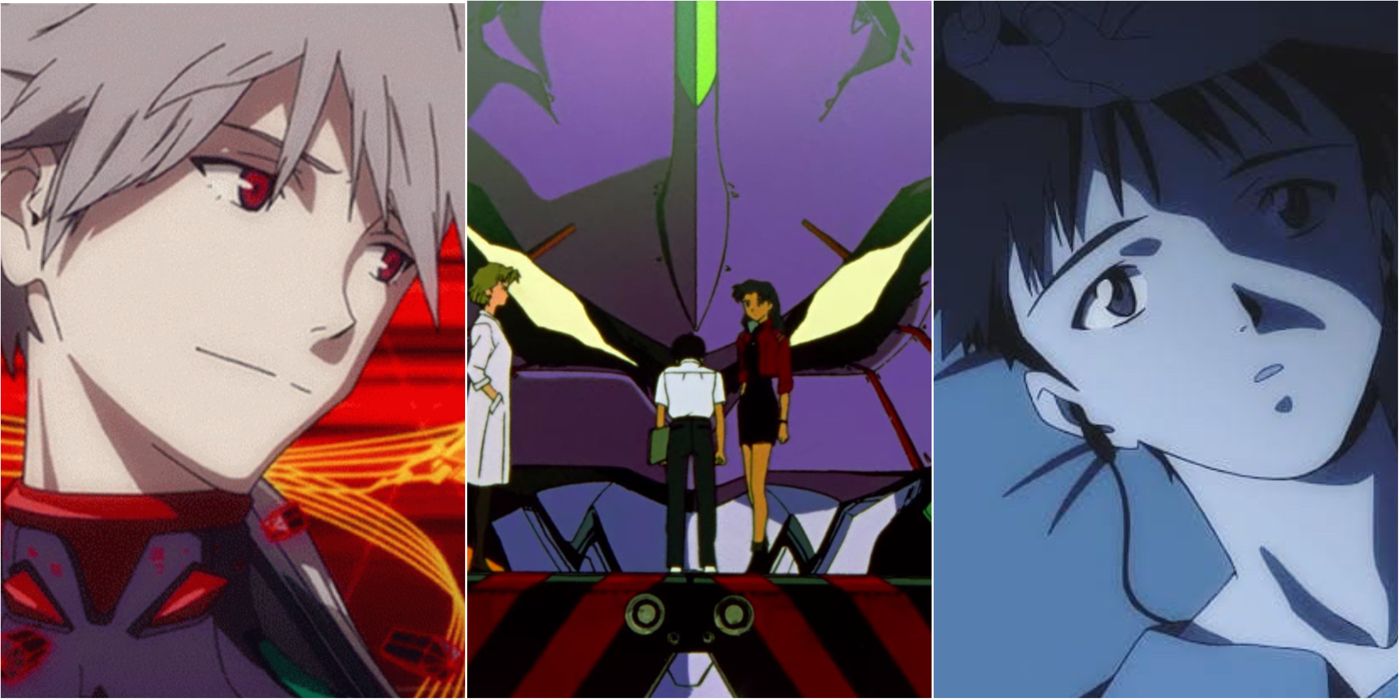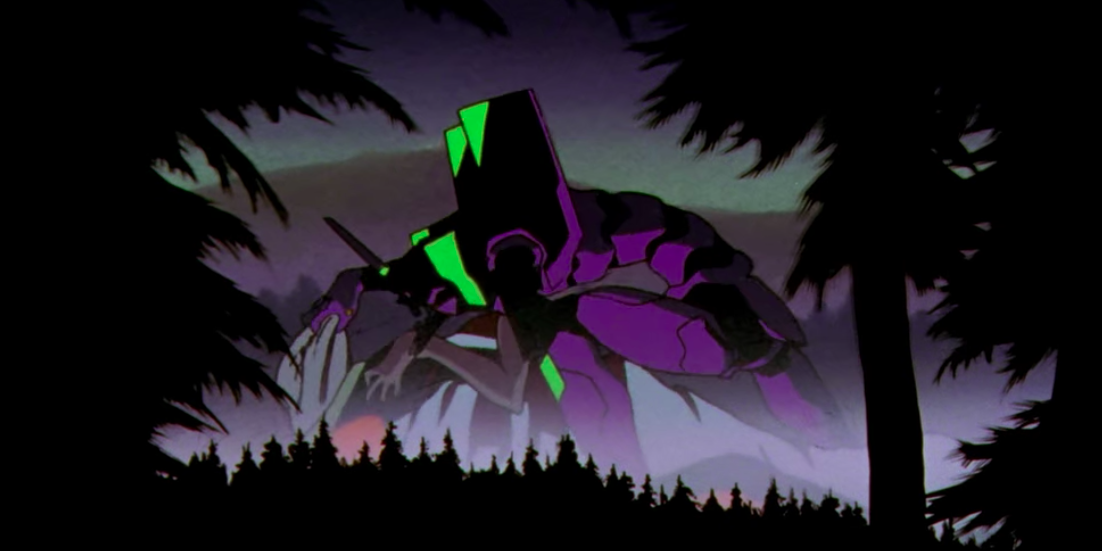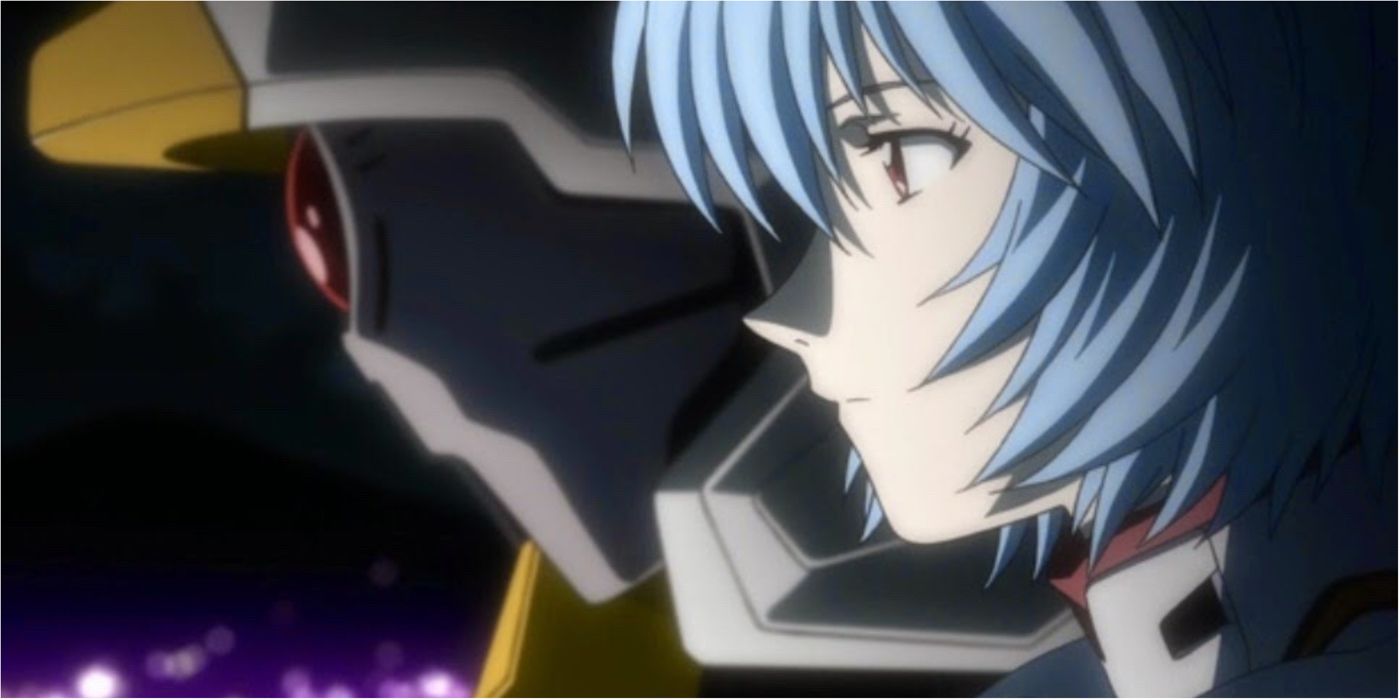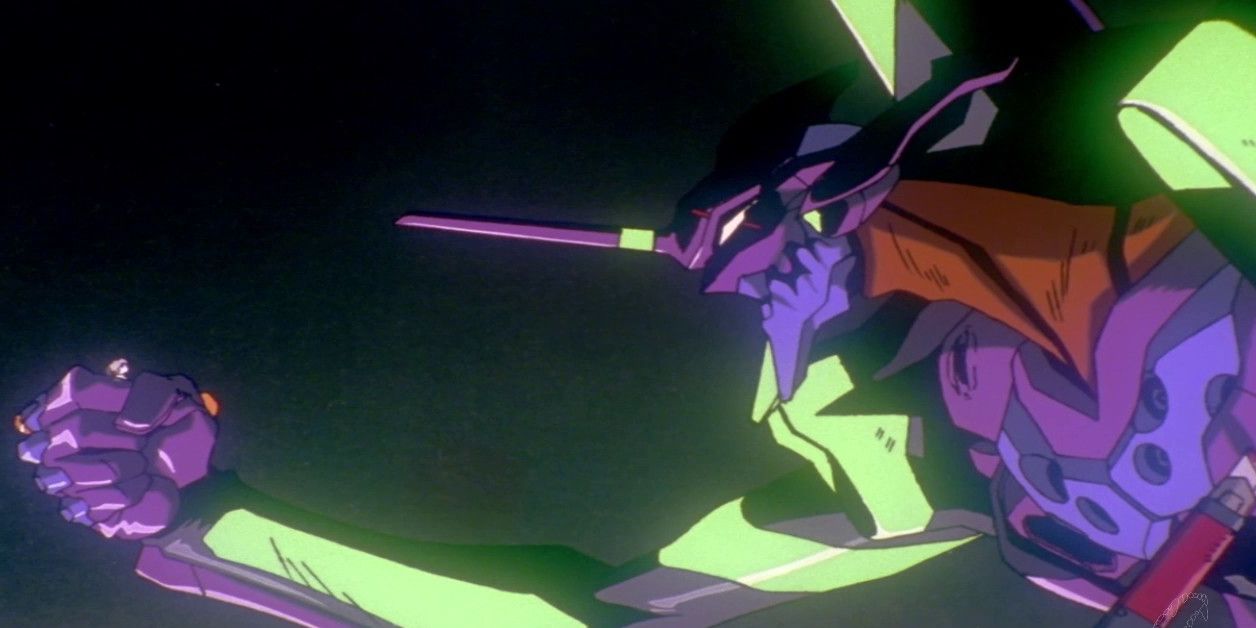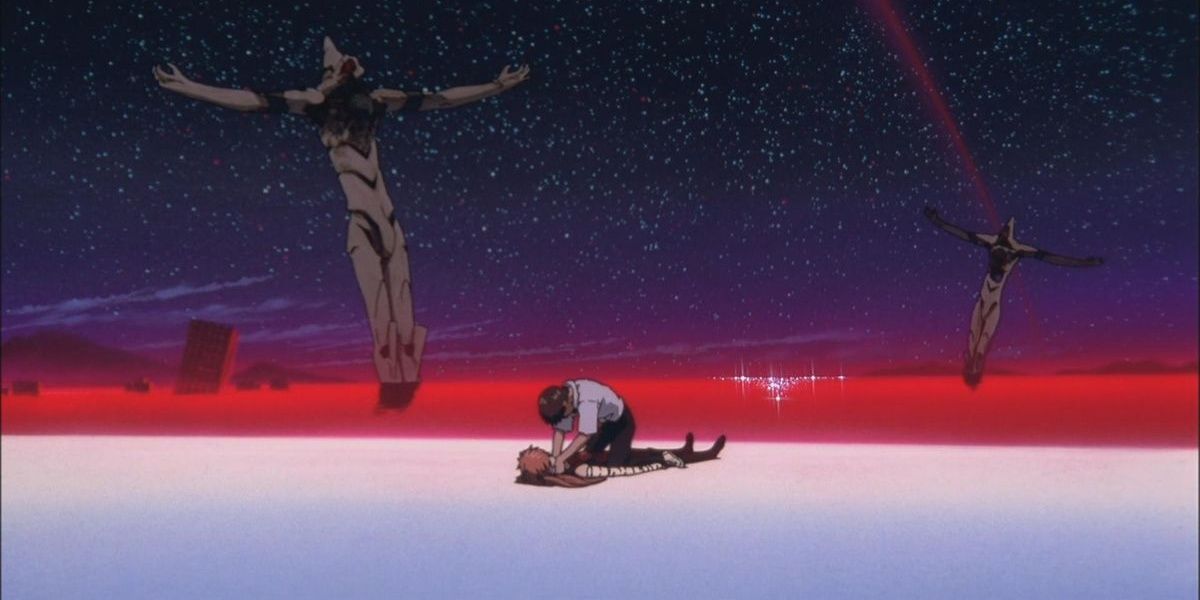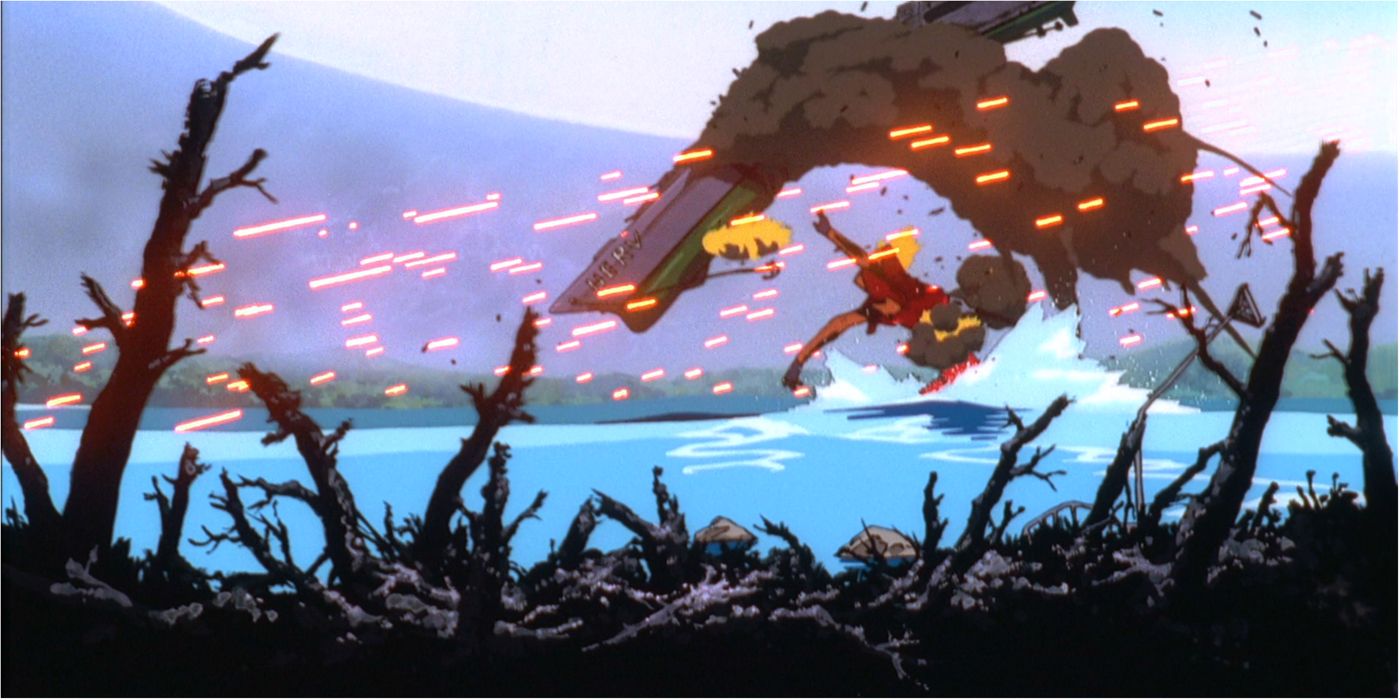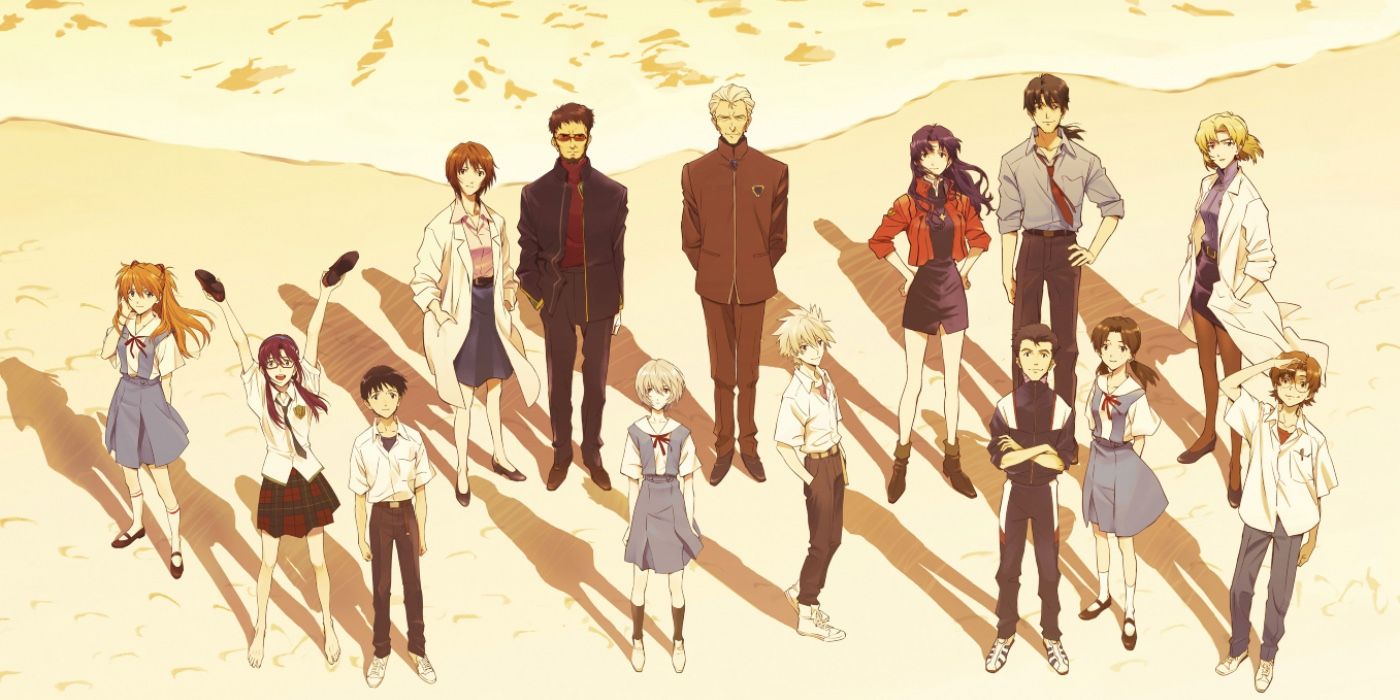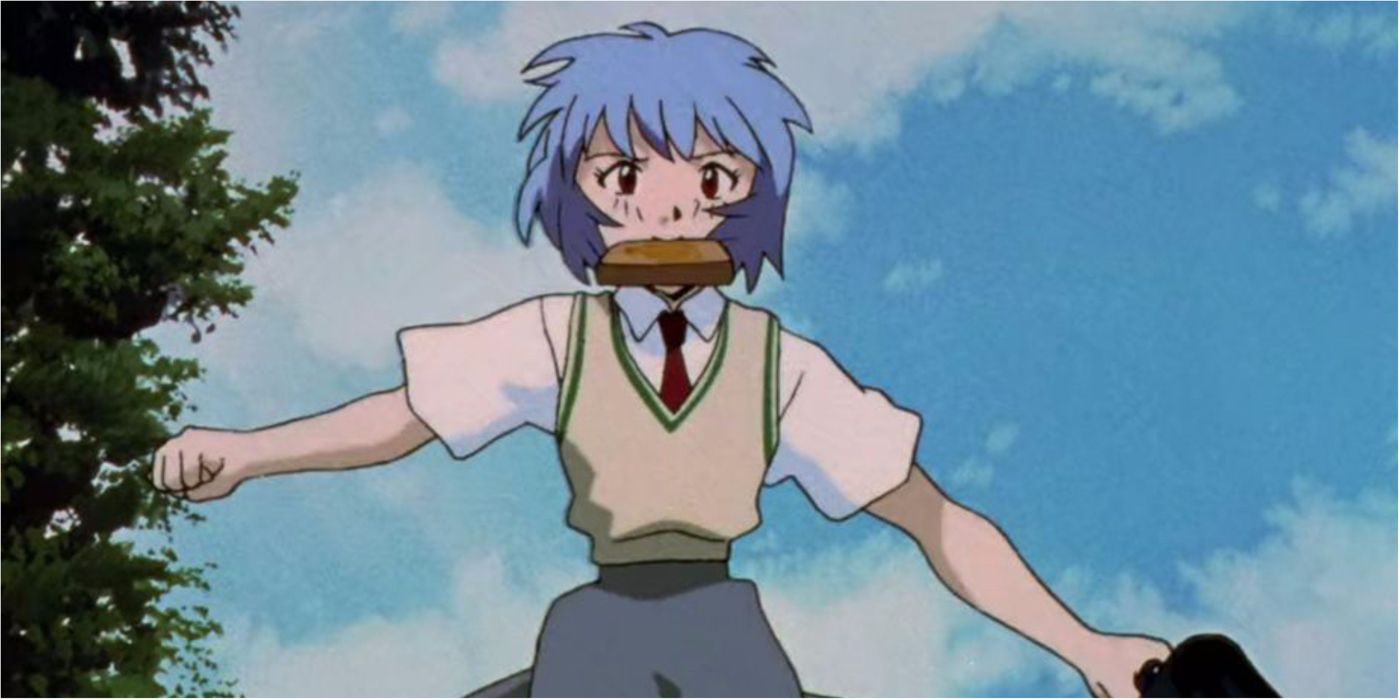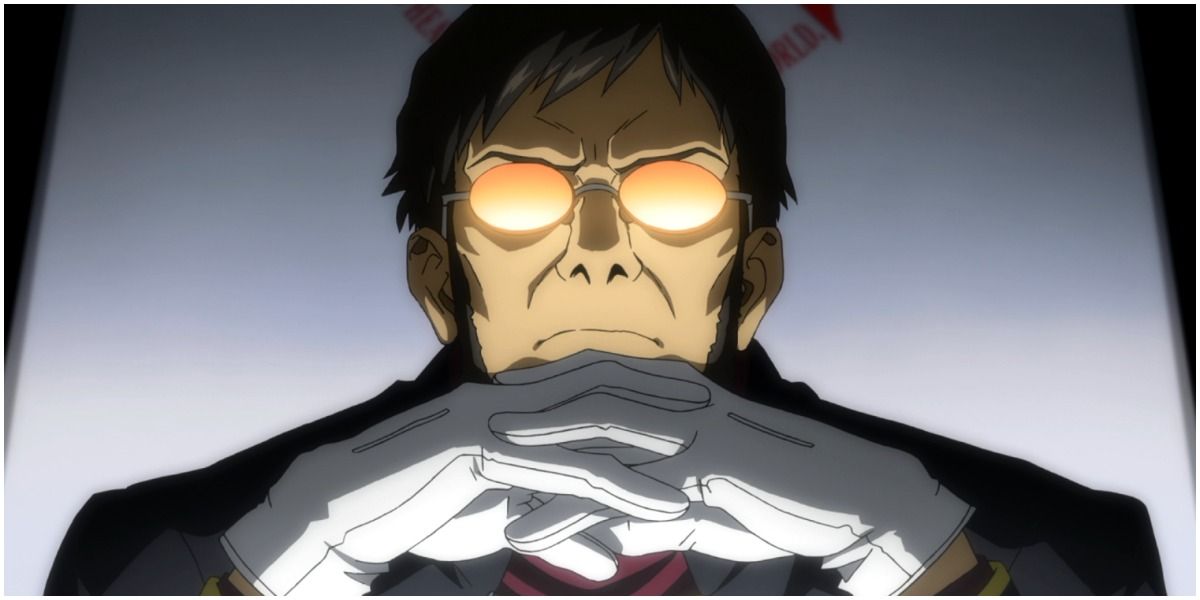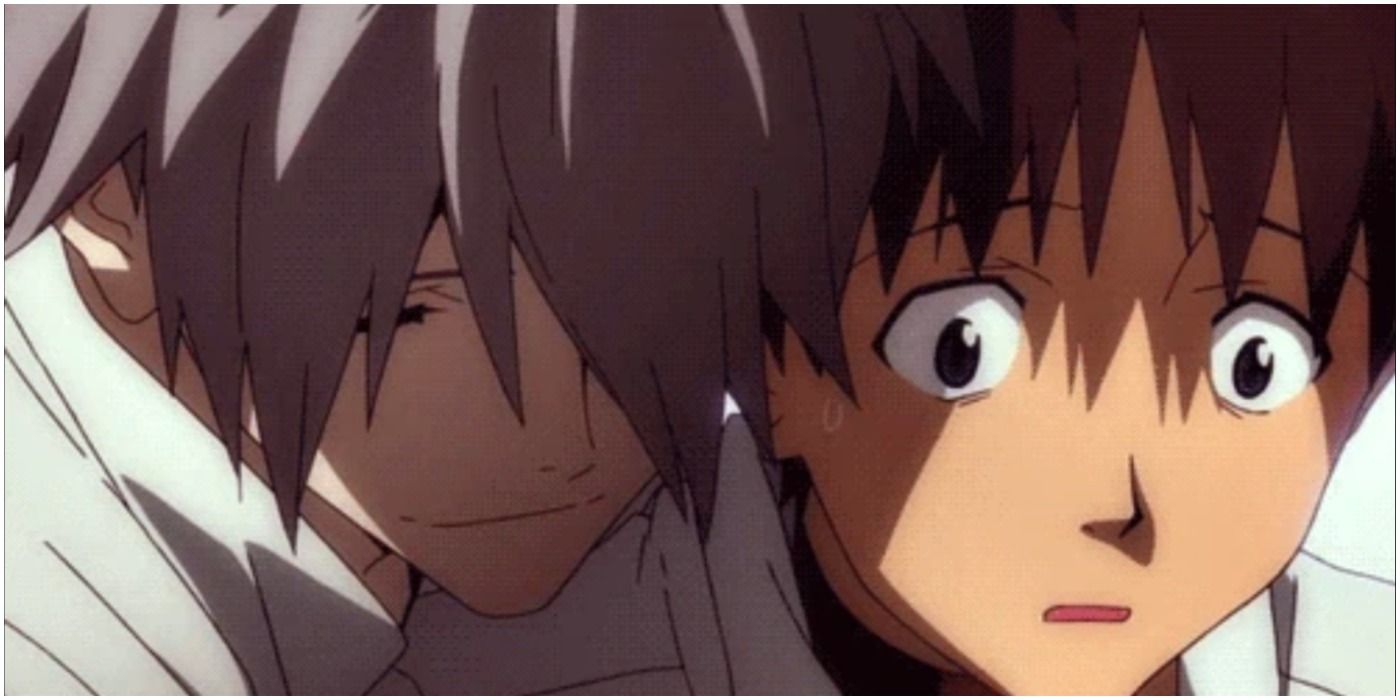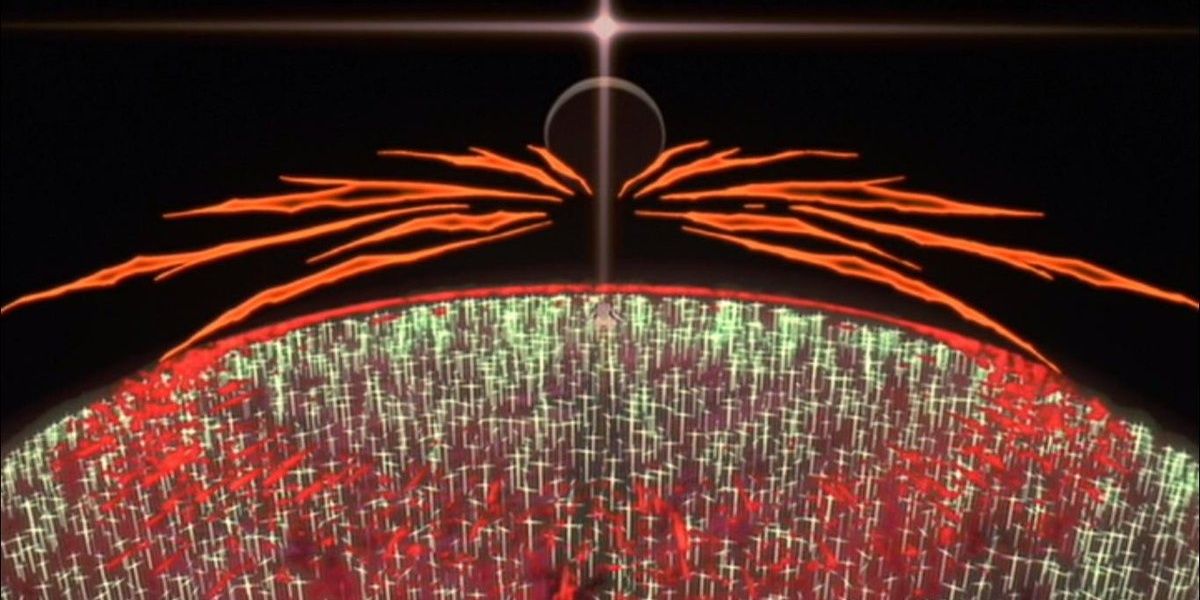Hideaki Anno's groundbreaking mecha franchise Neon Genesis Evangelion has been considered a landmark genre deconstruction since the anime series premiered in 1995. What started as a rather typical post-apocalyptic action spectacle gradually transformed into a complex, depressing labyrinth of themes and metaphors, exploring the damaged emotional state of its teenage characters and their equally troubled adult supervisors.
The show's fatalistic tone, in-depth approach to character development, and figurative narrative style made it an influential cult classic, which twists the mecha genre and hides most of its secrets beneath layered metaphors and chilling allegories. In the case of Evangelion, the subtext is often far more frightening than the text, and these disquieting implications make the already dark franchise appear even eerier.
10 EVAs Speculative Biological Origins Are Immoral And Greatly Disturbing
One of the most terrifying secrets behind EVAs is revealed early in the series after Shinji's catastrophic attempt to fight Angel Sachiel. Right before the boy faints from shock and phantom pain, his "robot" comes back to life on its own, glaring at Shinji with a human-like eye.
It turns out that all EVAs are not giant mindless machines. They are organic beings created from the First Angel Adam, except Unit 01, which uses samples from Second Angel Lilith. If that wasn't disturbing enough, each "robot" also possesses a human soul, heavily implied to belong to each pilot's dead mother.
9 Unit-00, Piloted By Rei Ayanami, Has The Soul Of Her Deceased Clone
As stated by Ritsuko in episode 23, all EVAs need a human soul to function, revealed later to be the soul of a pilot's mother. Being just one in a series of clones, Rei doesn't have a biological mother, making her Unit-00 an enigma.
Fans had multiple popular theories about it throughout the years, but the Rei 1 theory remains the most plausible. The show implies that after Rei's first clone was killed by Naoko Akagi, part of her soul was planted in Unit-00, and the remains were used to create a new Rei.
8 Shinji Had To Kill The One He Loved Most
Kaworu Nagisa has a bizarre yet infinitely important role in Evangelion, being the final pilot and an Angel disguised as a person, more human-like than any cryptic monster previously seen in the series. Despite only being in the show for an episode, Kaworu becomes the one to breach Shinji's barrier.
Their bliss ends quickly, as Shinji is forced to kill Kaworu at the end of the same episode. The effect this cruel act had on Shinji's fragile psyche becomes apparent in End of Evangelion, when Lilith, implied to morph into whoever the person in front of her cherished most, transforms into Kaworu to make Shinji merge with her.
7 End Of Evangelion Movie Culminates On An Immensely Depressing Note
End of Evangelion finale is a dark counterpart to both the series and the rebuilds' endings, and the implications of the film's final scene are still debated in the community. After Shinji rejects Instrumentality, the only person he discovers who emerged from the LCL Sea is Asuka. And their faith isn't implied to be anything but depressing.
The audience is left wondering if anyone else will ever emerge from the LCL sea. Even if they do, no one knows if humanity will have a chance to learn from their mistakes and survive the Third Impact's aftermath.
6 Living In A Post-Second Impact World Would Be A Nightmare
While Evangelion spends some time showcasing the world and characters outside its main cast, it never dwells too much on how the emergence of Angels affected the rest of humanity. However, the implications of such a catastrophic event are clear.
The Second Impact killed over half of the human race and changed the world's climate, dooming people to live in fear of such an event repeating itself. The Second Impact and the resulting wars left humanity in a devastating state, which makes the grander world of the series infinitely bleak and hopeless.
5 The Horrific Events Of Evangelion Are Doomed To Repeat Themselves Over And Over
Evangelion 3.0+1.0 Thrice Upon a Time is the final movie in the rebuild film series and, most likely, the final installment in the Evangelion franchise. While the movie didn't answer every burning question the fans had for it, keeping with the established enigmatic tone, it confirmed one popular fan theory.
The film reveals that the events of Evangelion are an endless time loop, with the same story playing out with different outcomes. It implies that every iteration of Shinji's tale, from the most depressing to relatively hopeful, is canon, just set in a different version of the same universe.
4 Shinji Never Got To Experience An Alternate Reality Free Of Dead, Despair, And Evangelions
Thrice Upon a Time changed the implications of every previous film and the original TV series drastically. By confirming the Evangelion multiverse theory, the events of every Evangelion property to ever come out are technically canon.
The confirmation of the multiverse means that Shinji's vision in the Instrumentality of him and his friends living ordinary lives in a world with no EVAs does really exist. Unfortunately, the version of Shinji the audience follows throughout every Evangelion storyline is stuck in a painful, cruel cycle, never getting to experience life free from trauma and despair.
3 Gendo Ikari Is A Grown-Up Version Of Shinji That Never Learned To Coexist With Others
Gendo Ikari, Shinji's absent father and NERV's Commander, is one of the franchise's most hated characters. Not only did he abandon his son, he never tried to apologize to Shinji, even after they reunited, acting disinterested and cruel towards the boy.
The series implies that Gendo is much more than just a manifestation of Shinji's fears and insecurities. The flashbacks of Gendo's past in Thrice Upon a Time showcase that he was eerily similar to his son as a child, leading the fans to believe that in the universes where Shinji didn't reconcile with himself, he grew up to be just like his father.
2 Kaworu Was Aware Of Evangelion's Time Loop Throughout Every Iteration Of The Series
The enigmatic purpose of Kaworu in the TV series finally got a more cohesive explanation in the rebuild's finale. Throughout the movies, Kaworu often hints at having met Shinji many times before. In Thrice Upon a Time, Kaworu explains that he's aware of Evangelion's endless time loop.
Kaworu is stuck in a cycle of coming to Earth, bonding with Shinji, and then being killed by him. While the final movie finally breaks the chains of Kaworu's curse, the implications of him being aware of his never-ending fate of dying at Shinji's hands is truly mortifying.
1 The Human Instrumentality Project Is A Curse Disguised As A Blessing By SEELE
Triggering the Human Instrumentality Project was the secret end goal for both of Evangelion's major villains, SEELE and NERV's Commander Ikari. By controlling the Third Impact, SEELE wanted to unite humanity as one being, erasing individuality and morphing people into an abstract singularity.
Obviously, the common population of the planet didn't have a say in SEELE's plan. While the organization portrayed Instrumentality as a new form of human evolution, the terrifying implications of being subjected to merging with all of humanity at once are horrific.

